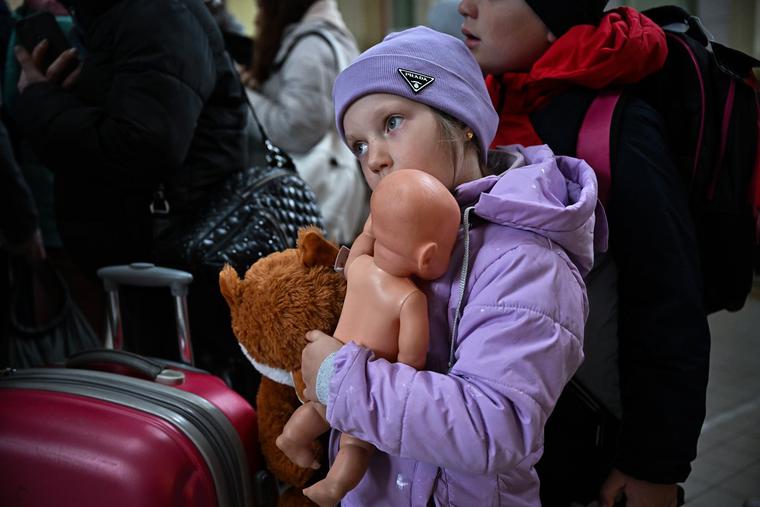Ukrainian Rhapsody — Almsgiving in the Time of Lent
Now more than ever it seems right to respond to the war in Ukraine with prayer, fasting and almsgiving.

As the conflict in Ukraine drags on and the fog of war continues to thicken, it can be tempting for Americans to focus on the political questions that led to the conflict, and the possible political solutions leading out of it. But for most Americans, there is little that we can do politically right now to influence a resolution. In the meantime, people are dying and will continue to die, and millions of people have been displaced from their homes through no fault of their own.
Given our helplessness, practically speaking, and because it is Lent, now more than ever it seems right to respond to such a crisis with prayer and fasting, especially following Pope Francis’ consecration of the region to Our Lady.
Along with prayer and fasting comes almsgiving — the third pillar of Lent — and now we are back at something practical that we can do.
Whatever the outcome of this war, there are many displaced people who have fled Ukraine, who are currently without homes, and will likely remain so for some time. Many of them have fled to nearby countries like Poland, where those religious and humanitarian groups trying to assist them will be up against some real financial limitations.
In light of Poland’s hosting of refugees, anyone looking to help them might consider Bishop Jerzy Mazur. Bishop Mazur has served in Belarus, Russia, Ukraine and Poland, and is deeply familiar with the conflicts in Eastern Europe. He was installed in his current diocese of Elk in Poland (near Lithuania) by Pope John Paul II in 2003. Currently, there are about one million refugees in his diocese, including seminarians whose seminary was bombed in Ukraine. Bishop Mazur is currently working to help these refugees; all funds sent to him in the following form will be used for people of Ukraine.
(Make checks payable to Divine Word Missionaries, and in the memo line designate “For Bishop Jerzy Mazur – Refugee.” The mailing address is Father Janusz Horowski, Society of the Divine Word, PO Box 6024, Techny, IL 60082.)
For a more entertaining option, rock and Celtic music fans might want to consider Scythian. The Catholic band (about which I have previously written) is made up of Ukrainian-Americans. Last summer they performed a Ukrainian tribute song, “Dearest Mother Mine,” a traditional piece, more of a ballad than a foot-stopper. Now, with the ongoing events in Ukraine, they’ve updated their videos of the performance with links to a Knights of Columbus matched grant up to $500,000 (that is, the Knights will match donations up to the half million dollar limit). Go along if you’re so inclined, view the video on YouTube or Facebook, and drop something in the hat if you can. (You can find the link to the fund in the Scythian comment under the YouTube video; or go here directly.)
- Keywords:
- almsgiving
- refugees
- ukraine war

















